
SCARS Institute’s Encyclopedia of Scams™ Published Continuously for 25 Years

SCARS Position Statement Against Scambaiting
A Commentary On False Solutions
April 2021
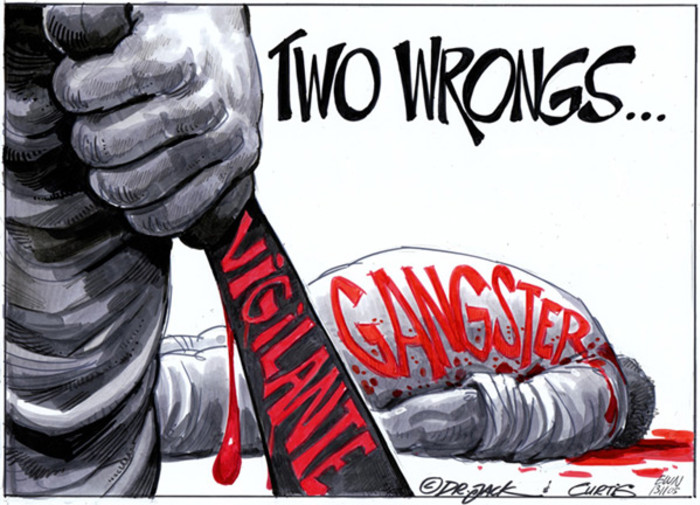
Regarding Recent Studies Of Scambaiting By Noted Academics
Recently, two studies attempted to understand the phenomena of Scambaiting by vigilante anti-scam hater groups on Facebook and elsewhere.
While the research did not exactly promote the practice it gave it a voice and notoriety.
Regrettably, we have to strongly oppose the positions taken in these papers. While it is always valuable to study and understand phenomena, such as online crime, we find this research and articles to be unethical.
Why would we say something like that and condemn obvious research with the purpose of understanding a serious problem of criminality?
Scams and cybercrime are massive problems worldwide!
They generate multiple trillions of dollars in losses across the globe. Individuals lose their life savings and frequently take their lives. Businesses have been known to shutdown after major cyberattacks.
Victims are angry – because they have been traumatized and are going through grief. But vigilantism is not the answer!
Instant experts and charlatans promote scambaiting to validate themselves and feed off of victim pain. They have substantial arguments in favor of what they do. How it slows down scammers, interferes with their offenses against others, and more. These are all proven to be false narratives.
Ignoring the self-corrupting aspects of it – namely engaging in the very same deceptions as the criminals. Not only does it cause significant harm to the real victims that participate by protracting their anger and delaying their recovery, but it has been turned into a sport by many, leading victims astray and away from legitimate victims’ assistance providers and recovery programs – such as those offered by SCARS www.AgainstScams.org
Proponents of scambaiting believe that their “savior” actions are saving victims by slowing scammers down. In fact, in our experience, it is the opposite. They are increasing the institutional knowledge that scammers acquire and share.
Certainly, scambaiters can waste the time of a small number of individual fraudsters, but the organizations are so large that it has no significance.
There is a small argument that scambaiters can acquire information that “might” help police in identifying individual scammers, but with hundreds of thousands of scammers operating it is insignificant. Almost all arrests result from reporting by other means that lead to the identification of scammers for other offenses, such as tax avoidance and other fraud.
The very nature of vigilantism can have profoundly negative effects on those that engage in it – both for the zealots that steadfastly adhere to its doctrine, but more importantly the serious compounding of trauma that can result.
Our organization reaches approximately 1.1 million scam victims a year. In all of our history, we are not aware of more than a handful of law enforcement actions that have come from scambaiting.
How can engagement in deception by those who have been profoundly deceived be validated? It is a crime being perpetrated by victims of crime – nothing more. Yes, scambaiting is a crime – it uses deception and fraud. All fraud must be condemned!
As a real victims’ assistance provider we have established ethical standards to both define our work and the lines for all that should not be crossed, and scam baiting is one of those lines.
We are profoundly troubled by the popular tendency to accept unethical behavior because it fits a narrative or maybe fun.
We believe that to study it as has been done in these documents serves both to validate the practice in the minds of its followers, and to misdirect real victims from valid recovery and law enforcement services.
Scambaiting creates a narrative that law enforcement does not work and that victims must take the law into their own hands. This is completely false. In 2019 over 111,000 scammers were arrested, and even in the pandemic of 2020 over 67,000 were arrested by law enforcement. This is very far from ineffective. Even the Nigerian EFCC will reach record numbers of arrests inside of Nigeria. Almost every country (except for Ghana) has recognized the impact that cybercrime is having, with the U.K. declaring it a national emergency in the press.
We have observed that when traumatized victims engage in vigilantism they are many times more likely to increase trauma and develop PTSD – the same is true here with scambaiting. They are also likely to turn away from law enforcement and real support that such anti-scam hate groups provide.
Scam baiting must be condemned in the fullest because of its ethical corruption and the harm that it promotes in victim communities.
These studies – in our opinion – fail to do that, and serves to validate it as a method for anti-scam defense – which it is not.
Sadly, the researchers never talked with real cybercrime victims’ advocates or those that truly support them, such as SCARS, prior to conducting or publishing their articles.
Normally, we are a strong promoter of research into our subject area, but not in this case.
For these reasons, we are substantially against the statements made in their research.
We felt that making this statement was vital in establishing balance and promoting the real welfare of victims worldwide.
We sincerely hope that the authors will consider looking at scambaiting from the other side of the coin and the real harm it does overall.
If you are a scam victim we encourage you to stay away from vigilantes and instant-expert saviors. Stay away from saviors and anti-scam hate groups. You are placing your own mental health in the hands of people that are in it for the sport!
If you need help we are here or talk to a real trauma counselor or therapist. Your future is what is at stake!
-/ 30 /-
What do you think about this?
Please share your thoughts in a comment below!
LEAVE A COMMENT?
Thank you for your comment. You may receive an email to follow up. We never share your data with marketers.
Recent Comments
On Other Articles
- on Finally Tax Relief for American Scam Victims is on the Horizon – 2026: “I just did my taxes for 2025 my tax account said so far for romances scam we cd not take…” Feb 25, 19:50
- on Reporting Scams & Interacting With The Police – A Scam Victim’s Checklist [VIDEO]: “Yes, this is a scam. For your own sanity, just block them completely.” Feb 25, 15:37
- on Danielle Delaunay/Danielle Genevieve – Stolen Identity/Stolen Photos – Impersonation Victim UPDATED 2024: “She goes by the name of Sanrda John now” Feb 25, 10:26
- on Reporting Scams & Interacting With The Police – A Scam Victim’s Checklist [VIDEO]: “So far I have not been scam out of any money because I was aware not to give the money…” Feb 25, 07:46
- on Love Bombing And How Romance Scam Victims Are Forced To Feel: “I was love bombed to the point that I would do just about anything for the scammer(s). I was told…” Feb 11, 14:24
- on Dani Daniels (Kira Lee Orsag): Another Scammer’s Favorite: “You provide a valuable service! I wish more people knew about it!” Feb 10, 15:05
- on Danielle Delaunay/Danielle Genevieve – Stolen Identity/Stolen Photos – Impersonation Victim UPDATED 2024: “We highly recommend that you simply turn away form the scam and scammers, and focus on the development of a…” Feb 4, 19:47
- on The Art Of Deception: The Fundamental Principals Of Successful Deceptions – 2024: “I experienced many of the deceptive tactics that romance scammers use. I was told various stories of hardship and why…” Feb 4, 15:27
- on Danielle Delaunay/Danielle Genevieve – Stolen Identity/Stolen Photos – Impersonation Victim UPDATED 2024: “Yes, I’m in that exact situation also. “Danielle” has seriously scammed me for 3 years now. “She” (he) doesn’t know…” Feb 4, 14:58
- on An Essay on Justice and Money Recovery – 2026: “you are so right I accidentally clicked on online justice I signed an agreement for 12k upfront but cd only…” Feb 3, 08:16
ARTICLE META
Important Information for New Scam Victims
- Please visit www.ScamVictimsSupport.org – a SCARS Website for New Scam Victims & Sextortion Victims
- Enroll in FREE SCARS Scam Survivor’s School now at www.SCARSeducation.org
- Please visit www.ScamPsychology.org – to more fully understand the psychological concepts involved in scams and scam victim recovery
If you are looking for local trauma counselors please visit counseling.AgainstScams.org or join SCARS for our counseling/therapy benefit: membership.AgainstScams.org
If you need to speak with someone now, you can dial 988 or find phone numbers for crisis hotlines all around the world here: www.opencounseling.com/suicide-hotlines
A Note About Labeling!
We often use the term ‘scam victim’ in our articles, but this is a convenience to help those searching for information in search engines like Google. It is just a convenience and has no deeper meaning. If you have come through such an experience, YOU are a Survivor! It was not your fault. You are not alone! Axios!
A Question of Trust
At the SCARS Institute, we invite you to do your own research on the topics we speak about and publish, Our team investigates the subject being discussed, especially when it comes to understanding the scam victims-survivors experience. You can do Google searches but in many cases, you will have to wade through scientific papers and studies. However, remember that biases and perspectives matter and influence the outcome. Regardless, we encourage you to explore these topics as thoroughly as you can for your own awareness.
Statement About Victim Blaming
SCARS Institute articles examine different aspects of the scam victim experience, as well as those who may have been secondary victims. This work focuses on understanding victimization through the science of victimology, including common psychological and behavioral responses. The purpose is to help victims and survivors understand why these crimes occurred, reduce shame and self-blame, strengthen recovery programs and victim opportunities, and lower the risk of future victimization.
At times, these discussions may sound uncomfortable, overwhelming, or may be mistaken for blame. They are not. Scam victims are never blamed. Our goal is to explain the mechanisms of deception and the human responses that scammers exploit, and the processes that occur after the scam ends, so victims can better understand what happened to them and why it felt convincing at the time, and what the path looks like going forward.
Articles that address the psychology, neurology, physiology, and other characteristics of scams and the victim experience recognize that all people share cognitive and emotional traits that can be manipulated under the right conditions. These characteristics are not flaws. They are normal human functions that criminals deliberately exploit. Victims typically have little awareness of these mechanisms while a scam is unfolding and a very limited ability to control them. Awareness often comes only after the harm has occurred.
By explaining these processes, these articles help victims make sense of their experiences, understand common post-scam reactions, and identify ways to protect themselves moving forward. This knowledge supports recovery by replacing confusion and self-blame with clarity, context, and self-compassion.
Additional educational material on these topics is available at ScamPsychology.org – ScamsNOW.com and other SCARS Institute websites.
Psychology Disclaimer:
All articles about psychology and the human brain on this website are for information & education only
The information provided in this article is intended for educational and self-help purposes only and should not be construed as a substitute for professional therapy or counseling.
While any self-help techniques outlined herein may be beneficial for scam victims seeking to recover from their experience and move towards recovery, it is important to consult with a qualified mental health professional before initiating any course of action. Each individual’s experience and needs are unique, and what works for one person may not be suitable for another.
Additionally, any approach may not be appropriate for individuals with certain pre-existing mental health conditions or trauma histories. It is advisable to seek guidance from a licensed therapist or counselor who can provide personalized support, guidance, and treatment tailored to your specific needs.
If you are experiencing significant distress or emotional difficulties related to a scam or other traumatic event, please consult your doctor or mental health provider for appropriate care and support.
Also read our SCARS Institute Statement about Professional Care for Scam Victims – click here to go to our ScamsNOW.com website.


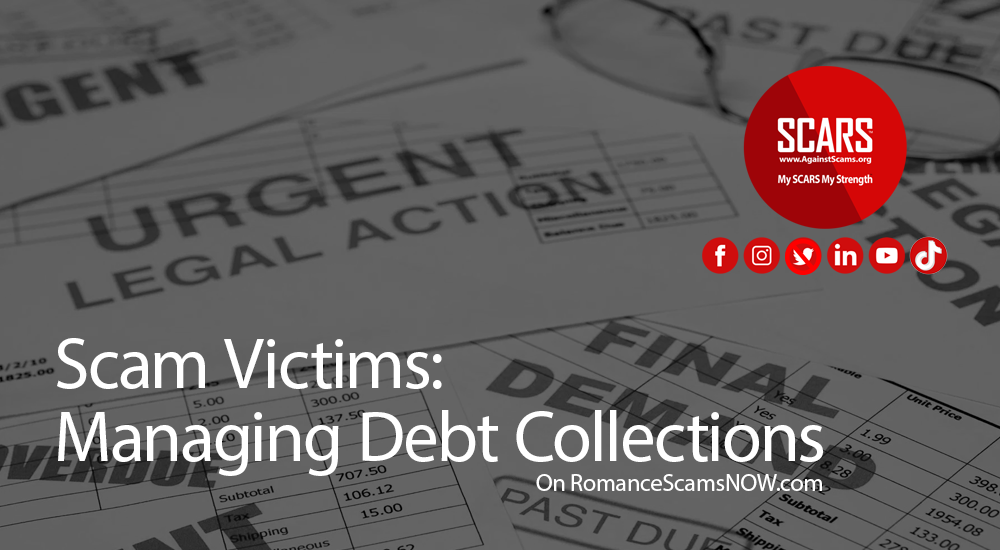
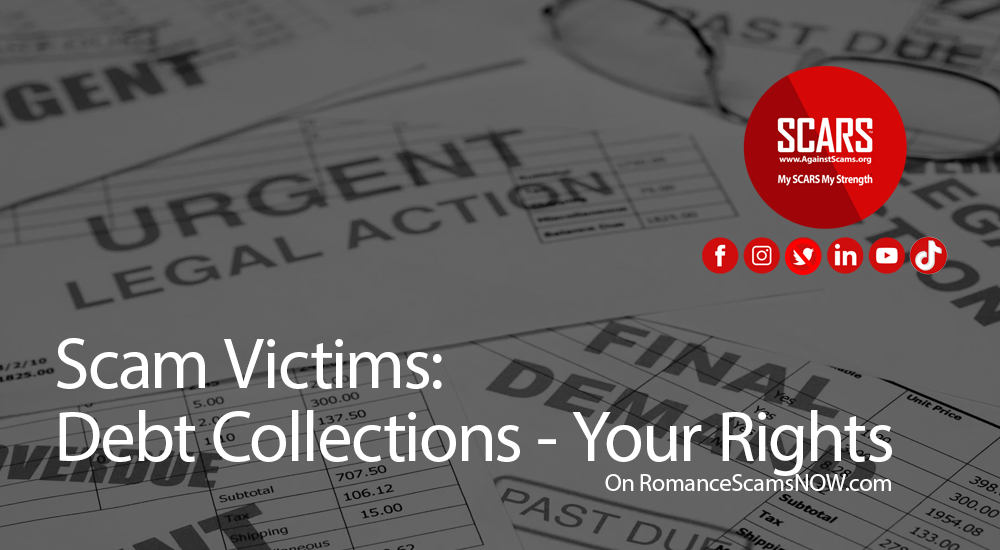
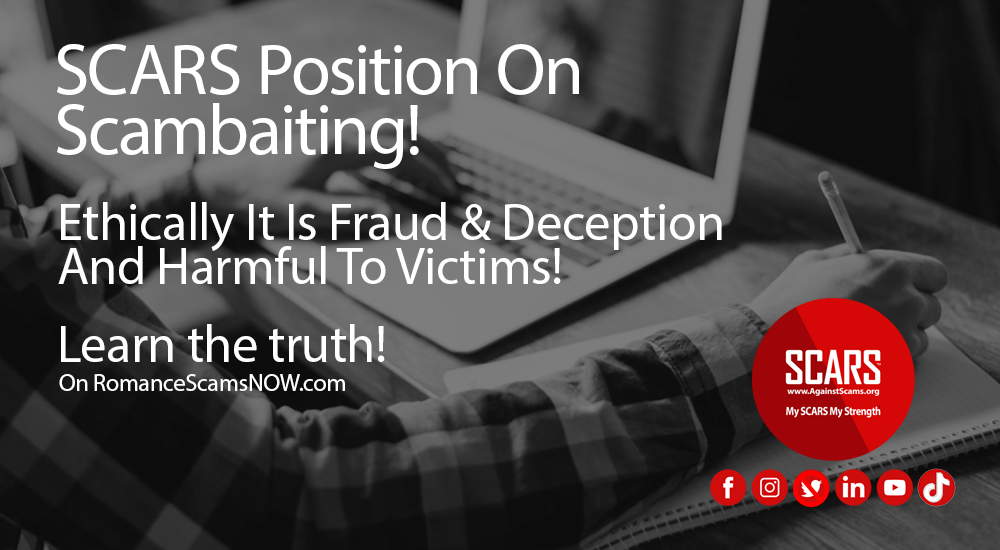


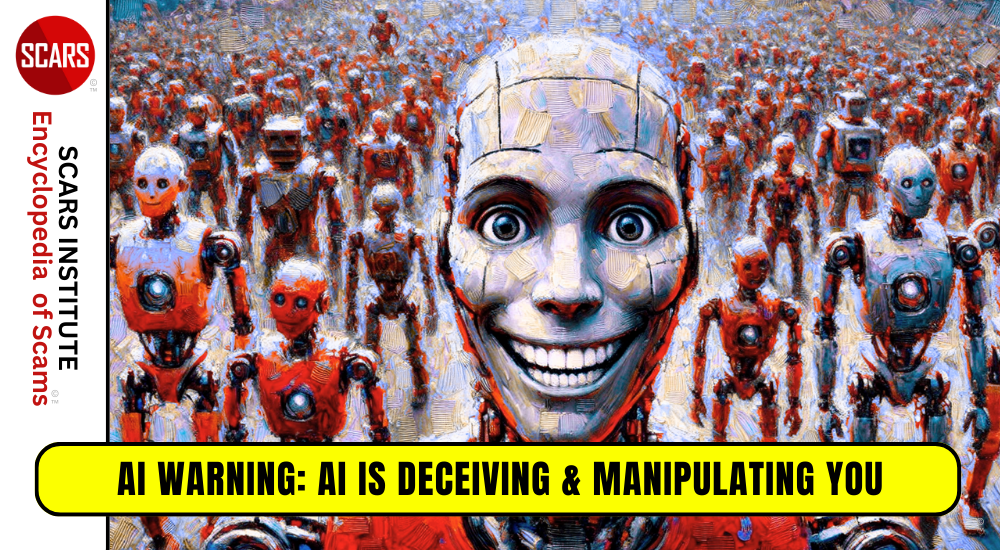

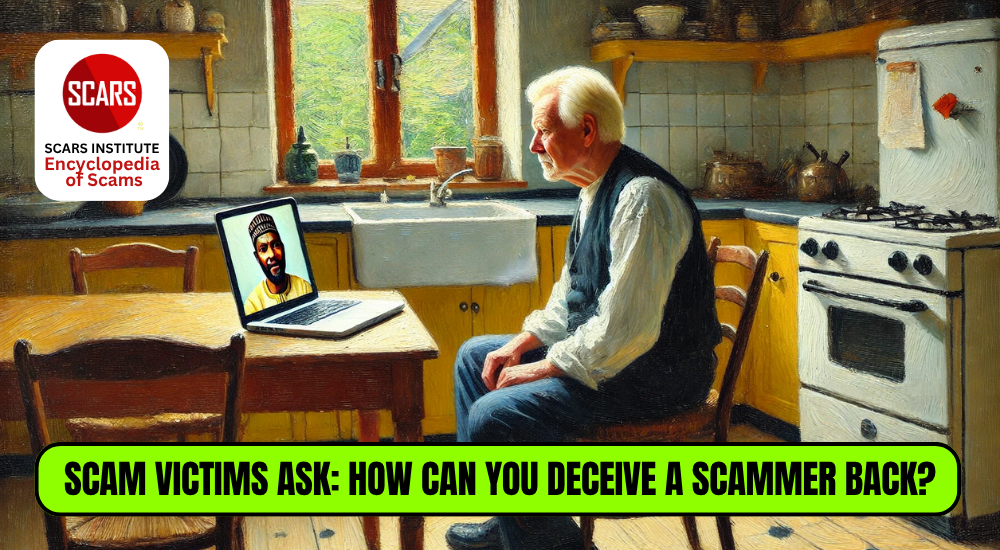
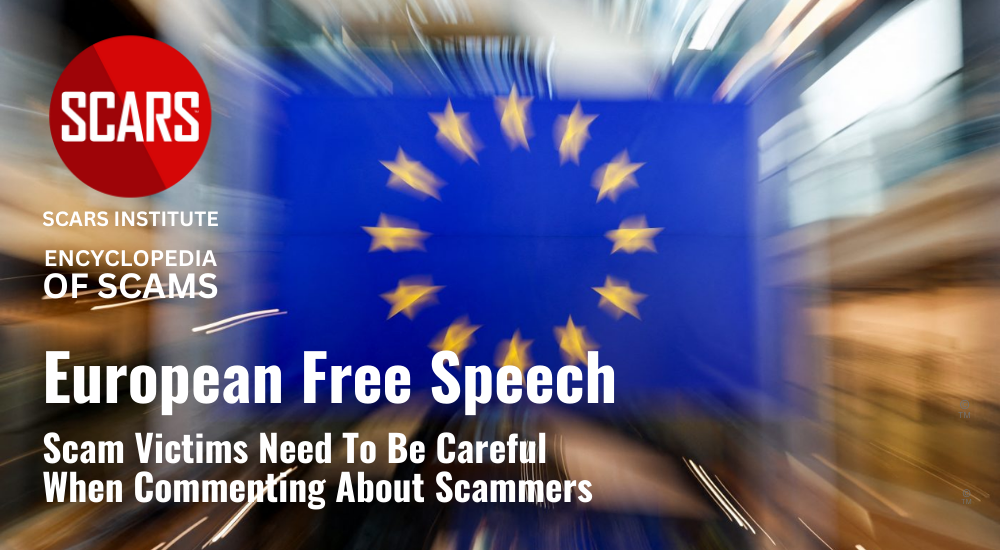
![Confronting Scammers & The Consequences Of What Can Follow 2019 [UPDATED 2024] Dont Confront Scammers Do Not Confront Scammers Or Criminals - on SCARS RomanceScamsNOW.com](https://romancescamsnow.com/wp-content/uploads/2019/05/Dont-Confront-Scammers.png)




This article is valuable and sounds the true call about scambaiting. I was brought up on the old adage “two wrongs never make a right”. This is true and has for the most part helped me through a good portion of my adult life. Scambaiting and vigilantism should not be a part of recovery. They serve no true purpose and can interfere with recovery setting it back an unknown length of time. I have not participated in either so far in my recovery. I have acknowledged that if the criminals in my crime are arrested, I probably won’t know. And I am ok with that fact.
It is important to stay informed and receive support from reliable sources such as SCARS.
Scambaiting sounds like a waste of time and exposes the victim to additional risks. I would rather spend my time focusing on recovery.
Thank You God for SCARS!